What does Duterte diplomacy style mean for the Philippines?
- Published
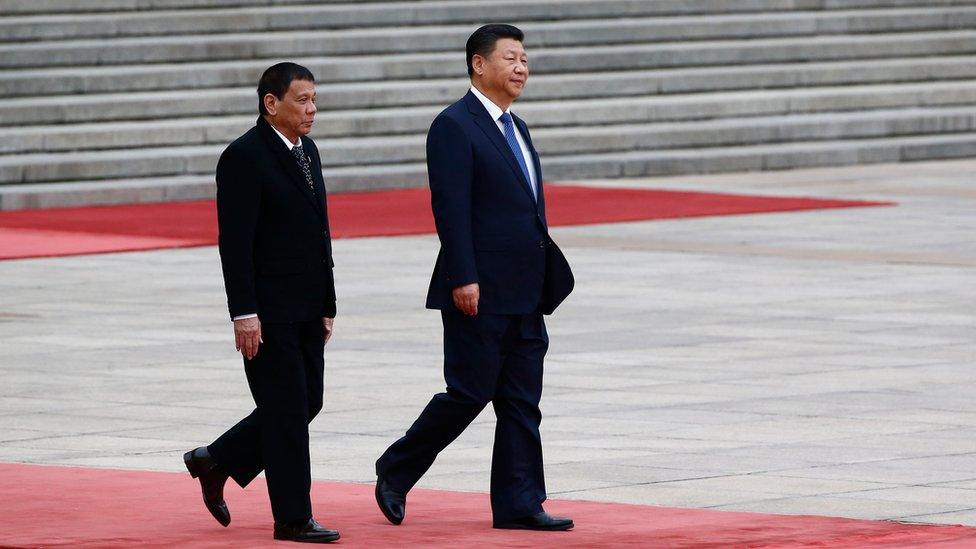
Philippines President Rodrigo Duterte (l) with Chinese President Xi Jinping in Beijing
Winston Churchill wasn't averse to the odd insult, reportedly once describing Charles de Gaulle as a man who "looks like a female lama surprised when bathing".
Col Muammar Gaddafi famously farted his way through at least one television interview.
But now there's a new master of the undiplomatic discourtesy on the world stage.
The Philippine President Rodrigo Duterte - addressing a gathering of Chinese officials and businessmen here in Beijing - wasn't holding back.
"Americans are loud, sometimes rowdy," he is reported to have said. "Their larynx is not adjusted to civility." And this was just the beginning of the speech.
Unsurprisingly the remarks, including the announcement of the "separation" of his country from the United States, its longstanding ally, went down very well indeed.
For Chinese officials, right up to President Xi Jinping who warmly greeted Mr Duterte in Tiananmen Square just a few hours earlier, it is like all their Christmases have come at once.
For the Americans, it has left them simply baffled.
"It's not clear to us exactly what that means in all its ramifications, so we're going to be seeking a clarification on that," a State Department spokesperson told reporters back in Washington.
There are three possibilities. The first, the one the US is banking on right now, is that it is, in fact, all bluster.
That Mr Duterte, in a bid to ingratiate himself with his Chinese hosts, has been simply playing to the gallery and that, unless and until any formal steps are taken, everyone knows the trade and defence treaties with the US remain firmly in place.
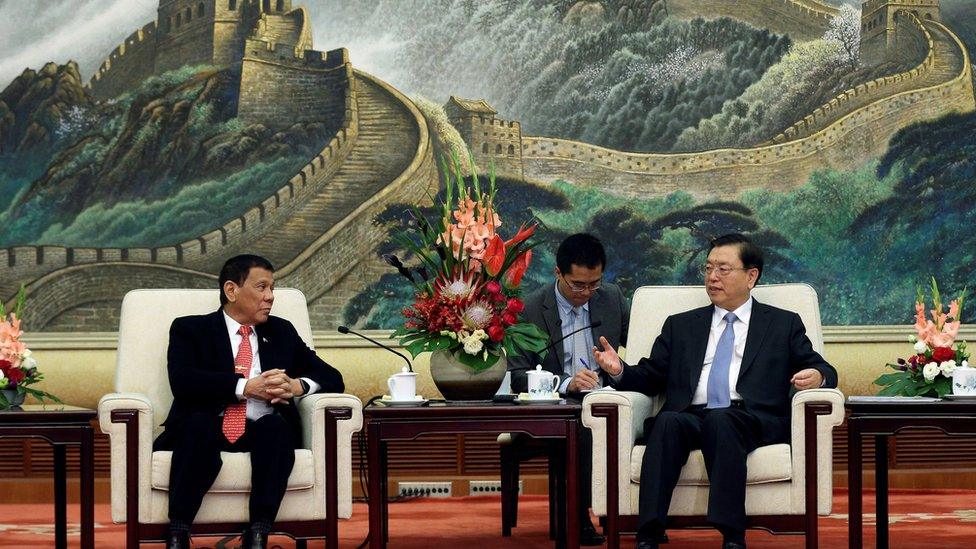
Mr Duterte met with Chinese leaders on Thursday
A far more troubling possibility is that Mr Duterte does indeed mean business. Stung by the recent criticism of his human rights records by the US and mindful of the growing military and economic might of China, might his utterances signal something real and substantive in terms of a foreign policy shift?
Chinese ships currently occupy the disputed Scarborough Shoal in the South China Sea and however many international tribunals the Philippines win over the issue they are unlikely to alter the balance of power.
And the Philippines could certainly do with better access to the massive market of 1.3 billion consumers on its doorstep.
But there is a third more complex possibility, that Mr Duterte is trying to have his cake and eat it, to engage in a great power game by playing the US off against China.
'Your fish is my fish'
It would not be the first time in recent years that a Philippine president has had to calibrate carefully his country's relationship with both superpowers.
There have been plenty of attempts at engaging with China in the past in the hope of putting the principles of the territorial dispute on the backburner in order to seek the mutual benefit of a resource sharing arrangement in the contested waters.
"Your fish is my fish," Mr Duterte told Chinese state TV ahead of this week's visit.
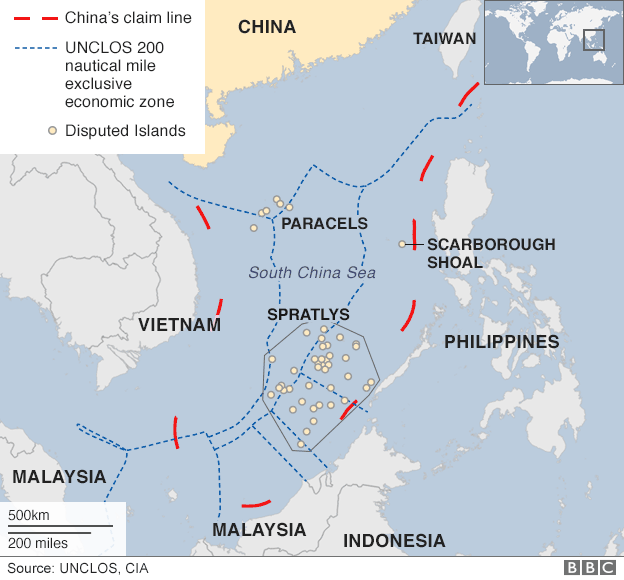
And yet such an approach would require deft diplomatic footwork and, you would think, a need for a careful weighing of words.
And what is even more baffling is that Mr Duterte, despite earlier assurances, appears to have made no attempt on this trip to raise the issue of the fishing rights of the Philippine fishermen currently excluded from their traditional grounds around Scarborough Shoal.
At home, his government also appears to be struggling to make sense of exactly what the strategy is. His trade minister insisted that there will be no formal break in ties with the US.
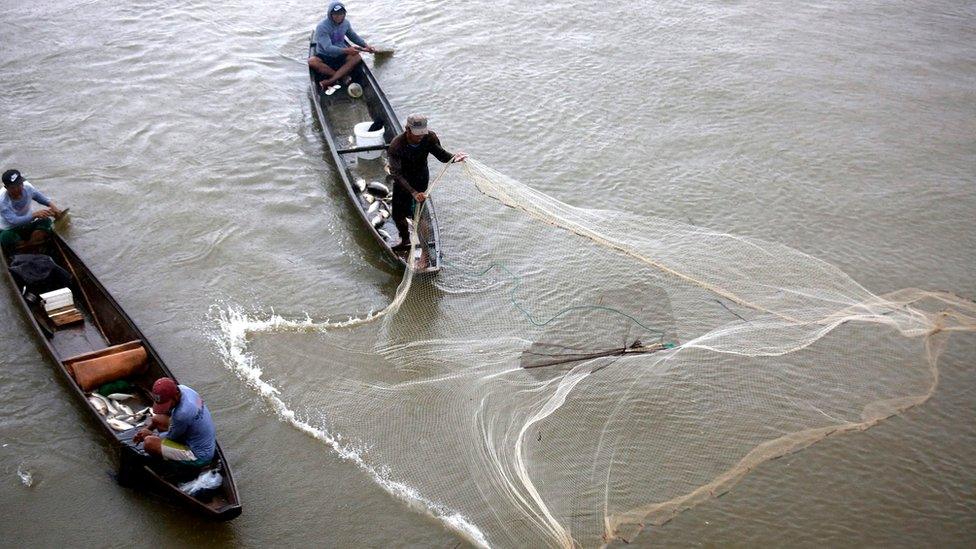
Mr Duterte did not try to protect the rights of Philippine fisherman while in China
Another official asked reporters not to try to "interpret" the president's remarks but to wait instead until he returns to Manila.
Are the geopolitics of Asia really about to be turned upside down? Or should we be wary of reading too much into the barrage of insults and rudeness.
Despite Churchill's taunting of de Gaulle referred to earlier, Britain and France remained uneasy allies. Perhaps the US and the Philippines will too.
- Published21 October 2016
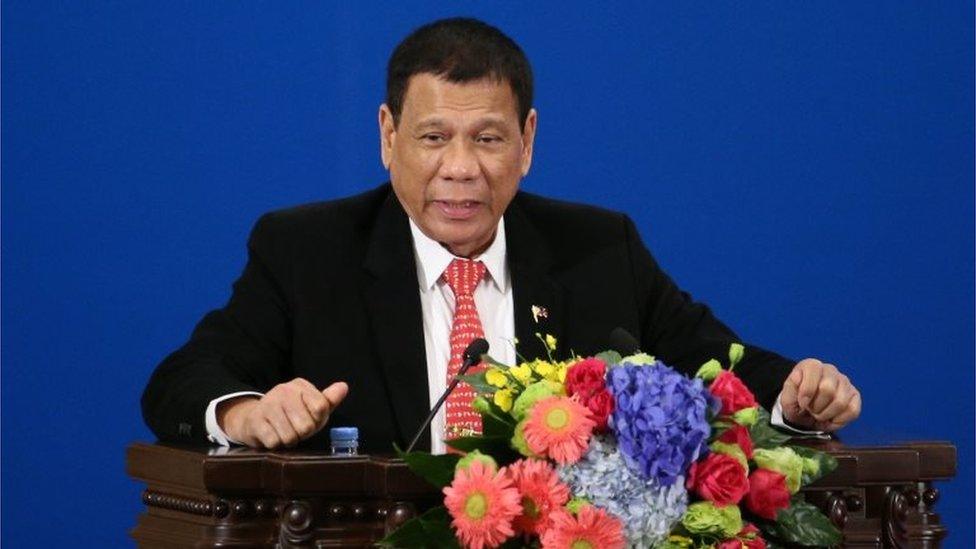
- Published20 October 2016
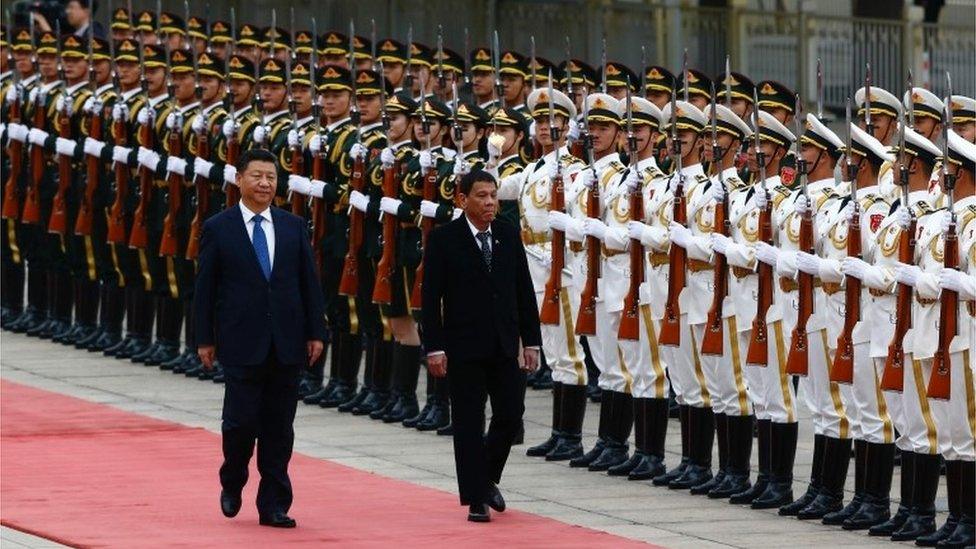
- Published18 October 2016